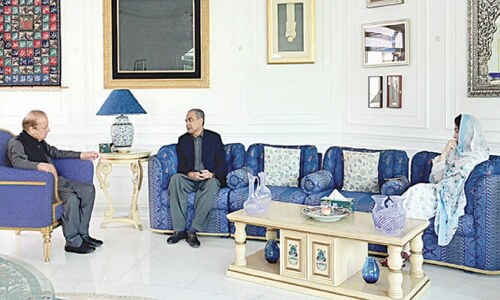The Sustainable Development Goals (SDGs) are trying to find feet in Pakistan for the last five years. Unable to create even base-lines, especially for agriculture and food, for assessing the performance of different goals, the SDGs Support Unit at the Ministry of Planning Development and Special Initiatives is more of a struggling unit, rather than a leading one.
Adopted by the United Nations in January 2016, the SDGs — a policy follow up of the Millennium Development Goals (MDGs) — were adopted by the parliament, creating a special unit in February 2017 to ensure that all goals are achieved by 2030 as envisaged by the world.
Since the goals demand the eradication of hunger and poverty, they inevitably apply to agriculture and set goals in rural economy for productivity, sustainability, diversity and, finally, food security. As an extension of agriculture, the SDGs also look into water realities and charge the government to ensure integrated and efficient usage.
However, the baselines for most of them are hard to affix in the absence of credible data. Most, if not all of them, are assessed in the Agriculture Census, which was last carried out in 2009 and the next one was due in 2019. According to the government claims, it is carried out and is in the tabulation stage and should be available in the next two to three months.
Good enough! However, 30 per cent time of the SDGs — five out of 15 years — is lost before we know the current position and start measuring progress, if any. So, for Pakistan, it would virtually be a 10-year exercise against 15 years for the rest of the world.
“There are a host of other grey areas, like sustainable agriculture,” explains an official involved in the SDGs implementation. This sustainability factor can only be determined at the local level because all variables determining it can only be measured at the grass-root level. For example, farm practices, pesticides’ usage and management of water quality, levels and situation, all are issues that can only be measured at a local level and used for developing national data integrated. They remain a big question mark in our case, he says.
Similarly, some political questions are involved as well. One of the goals calls for ensuring genetic diversity of seed. “So, the issue crops up that should Pakistan go for genetically diverse seeds developed by the world or it should develop its own. It was decided that we would go for our own seeds and divert money into research and development. How and when can it be done is now a million-dollar question,” he tells.
The only thing that Pakistan came up with was food insecurity figures, which is called the Food Insecurity Experience Scale (FIES) in the SDGs parlance. The Pakistan Social and Living Standard Measurement (PSLM) survey during 2018-19 put the figure at around 16pc. “It created more controversy than a consensus as the figure flew in the face of other more independent organisations’ numbers; most of them came up with more than 50pc of food insecurity and one of them put it as high as 64pc,” explains an official involved in the survey.
However, this is now the officially accepted number. The government accuses independent organisations of taking a different definition and methodology rather than that of the Food and Agriculture Organisation. But the fact remains that the official figures of food insecurity clash with popular perception about the food security situation.
Nadeem-ul-Haq of Pakistan Institute of Development Economics, on his part, wonders why Pakistan has to accept SDGs. “Why do we need SDGs in the first place? Why cannot we come up with our own goals and targets on all 17 points raised by the United Nations Development Programme (UNDP)? Why put the UNDP in charge of Pakistan’s policy? Even if we had to accept SDGs as policy, did the parliament debate them? Did the cabinet carry out due diligence? Did we come up with a coherent plan to implement these SDGs?
Published in Dawn, The Business and Finance Weekly, September 27th, 2021















































